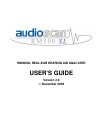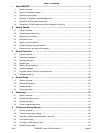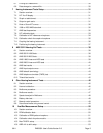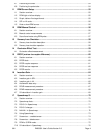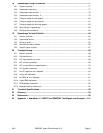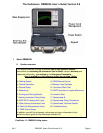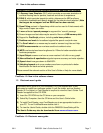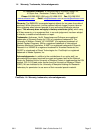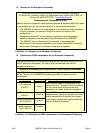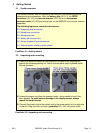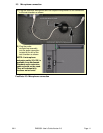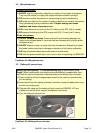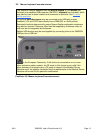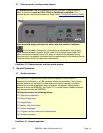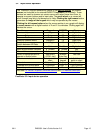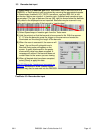
0611 RM500SL User’s Guide Version 2.8 Page 9
1.5 Notices for the European Community
FastFacts 1.5: Notices for the European Community
1.6 Declaration of EMC compliance for the European Community
FastFacts 1.6: Declaration of EMC compliance for the European Community
The compliances listed in the following table are met with the Audioscan SL-100
RECD transducer connected. The use of other accessories may result in
increased emissions.
Guidance and manufacturer’s declaration - electromagnetic emissions
The RM500SL is intended for use in the electromagnetic environment specified
below. The user of the RM500SL should assure that it is used in such an
environment.
Emissions test Compliance
Electromagnetic environment - guidance
RF emissions
CISPR 11
Group 1
The RM500SL uses RF energy only for its
internal function. Therefore, its RF emissions
are very low and not likely to cause any
interference in nearby electronic equipment.
RF emissions
CISPR 11
Class A
Harmonic emissions
IEC 61000-3-2
Class A
Voltage fluctuations/
flicker emissions
IEC 61000-3-3
Complies
The RM500SL is suitable for use in all
establishments other than domestic and those
directly connected to the public low-voltage
power supply network that supplies buildings
used for domestic purposes.
Authorised Audioscan represe
ntative within the European Community:
PC Werth Ltd., Audiology House, 45 Nightingale Lane, London SW12 8SP UK
Phone: +44 (0)20 8772 2700 www.pcwerth.co.uk
Electromagnetic Compatability (EMC)
Medical electrical equipment needs special precautions regarding EMC and needs
to be installed and put into service according to the following information:
v The RM500SL should not be used adjacent to or stacked on other equipment.
If this is necessary, its operation should be verified as normal in this
configuration.
v Portable and mobile RF communications equipment can affect medical
electrical equipment and may affect the performance of the RM500SL.
v The RM500SL has not been tested for immunity to electromagnetic
disturbances. Performance degradation due to such disturbances (including
electrostatic discharge) is considered normal and acceptable.



